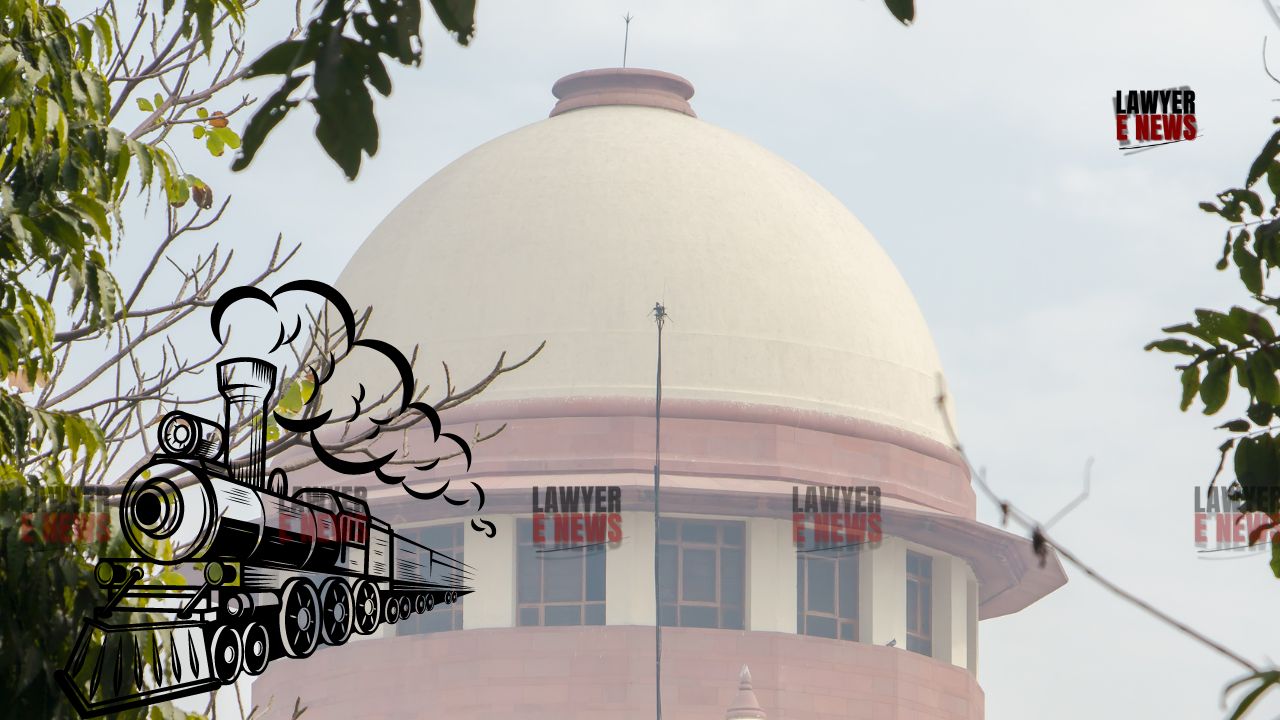-
by Admin
15 February 2026 2:36 AM



The Supreme Court has reaffirmed the dismissal of several railway employees who were found to have secured their jobs through fraudulent means. The ruling underscores the judiciary's firm stance against deceitful practices, especially in matters involving compassionate appointments. The decision overturns a previous High Court judgment that had reinstated the employees, with the Supreme Court emphasizing that fraud vitiates even the most solemn of proceedings.
The case involves the Union of India appealing against a High Court order that had overturned the Central Administrative Tribunal's (CAT) decision to dismiss railway employees who were appointed on compassionate grounds using forged documents. These employees were originally placed under suspension pending a departmental inquiry, which revealed that their appointments were based on falsified documents related to their deceased fathers' employment in the railway service. Despite the Tribunal's dismissal of their applications, the High Court reinstated the employees, prompting the Union of India to challenge the decision in the Supreme Court.
The Supreme Court's judgment, delivered by a bench including Justices J.K. Maheshwari and Sanjay Karol, firmly stated that the appointments obtained by the respondents through fraudulent documents could not be sustained. The Court reiterated the principle that "fraud unravels everything," citing earlier judgments that emphasized how fraud vitiates all proceedings, whether judicial or administrative. The bench noted that despite the respondents' claims, they failed to produce any valid documentation to support their eligibility for compassionate appointments.
The respondents had argued that their dismissal violated principles of natural justice, claiming they were not given a fair opportunity to prove their innocence. However, the Court found this argument unconvincing, highlighting that the respondents had actively participated in the inquiry process and were unable to provide any legitimate evidence to substantiate their claims. The Court also pointed out that the respondents had continued to challenge the procedural aspects rather than addressing the substantive issue of the forged documents.
The Court reinforced that compassionate appointments are a concession, not a right, and must be granted based on genuine eligibility. The misuse of this provision through fraudulent means not only undermines the integrity of the system but also deprives genuinely deserving candidates. The bench criticized the High Court for its misinterpretation of the Railway Servants (Discipline & Appeal) Rules, 1968, and clarified that the rules do not permit the reinstatement of employees who secured their positions through deceit.
Justice Sanjay Karol emphasized, "No Court in this land will allow a person to keep an advantage he has obtained by fraud. Fraud unravels everything. The respondents, having obtained their positions by fraud, cannot be considered to be holding a post for the purpose of protections under the Constitution."
The Supreme Court's decision to set aside the High Court's judgment and uphold the CAT's dismissal order serves as a strong reminder that fraud and deceit will not be tolerated, particularly in public service appointments. The ruling reinforces the principle that compassionate appointments must be reserved for those truly in need, and any attempt to subvert this process through fraudulent means will be met with stringent legal consequences.
Date of Decision: August 1, 2024.
Union of India & Ors. vs. Prohlad Guha & Ors.
